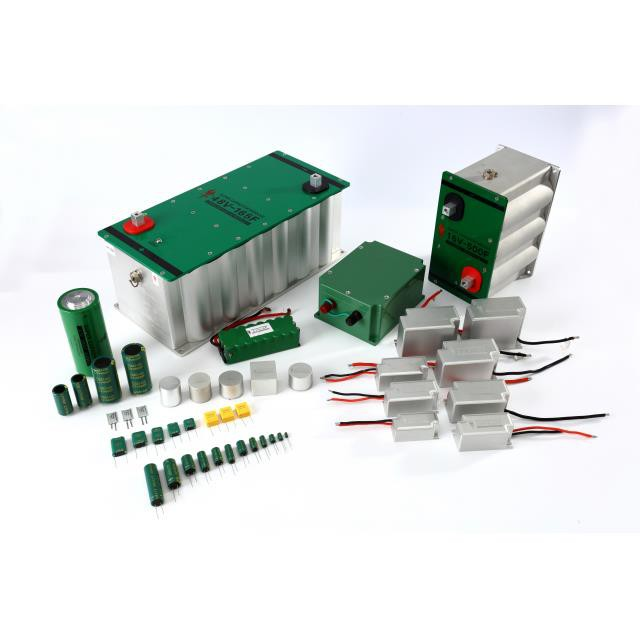Precautions for Using Super Capacitors
1) Super capacitors have a fixed polarity. Before use, confirm the polarity.
2) Super capacitors should be used at nominal voltage. When the capacitor voltage exceeds the nominal voltage, it will cause the electrolyte to decompose, at the same time the capacitor will heat up, the capacity will decrease, and the internal resistance will increase, and the life will be shortened.
3) Super capacitors should not be used in high-frequency charging and discharging circuits. High-frequency fast charging and discharging will cause the capacitor to heat up, the capacity will decrease, and the internal resistance will increase.
4) The ambient temperature has an important effect on the life of the supercapacitor. Therefore, super capacitors should be kept as far away from heat sources as possible.
5) When a supercapacitor is used as a backup power supply, because the supercapacitor has a large internal resistance, there is a voltage drop at the moment of discharge.
6) Super capacitors should not be placed in an environment with relative humidity greater than 85% or containing toxic gases. Under these circumstances, the leads and the capacitor case will be corroded, causing disconnection.
7) Super capacitors should not be placed in high temperature and high humidity environments. They should be stored in an environment with a temperature of -30 to 50 ° C and a relative humidity of less than 60% as much as possible. Avoid sudden temperature rises and falls, as this will cause product damage .

8) When a super capacitor is used on a double-sided circuit board, it should be noted that the connection cannot pass through the capacitor's reach. Due to the way the super capacitor is installed, it will cause a short circuit.
9) When the capacitor is soldered on the circuit board, the capacitor case must not be contacted with the circuit board, otherwise the solder will penetrate into the capacitor through hole and affect the performance of the capacitor.
10) After installing a super capacitor, do not forcibly tilt or twist the capacitor. This will cause the capacitor leads to loosen and cause performance degradation.
11) Avoid overheating capacitors during soldering. If the capacitor is overheated during welding, it will reduce the service life of the capacitor.
12) After the capacitor is soldered, the circuit board and the capacitor need to be cleaned, because some impurities may cause the capacitor to short circuit.
13) When supercapacitors are used in series, there is a problem of voltage balance between the cells. A simple series connection will cause one or more individual capacitors to overvoltage, which will damage these capacitors and affect the overall performance. Therefore, when the capacitors are used in series, , Need technical support from the manufacturer.
14) When other application problems occur during the use of supercapacitors, you should consult the manufacturer or refer to the relevant technical data of the supercapacitor's instructions.
